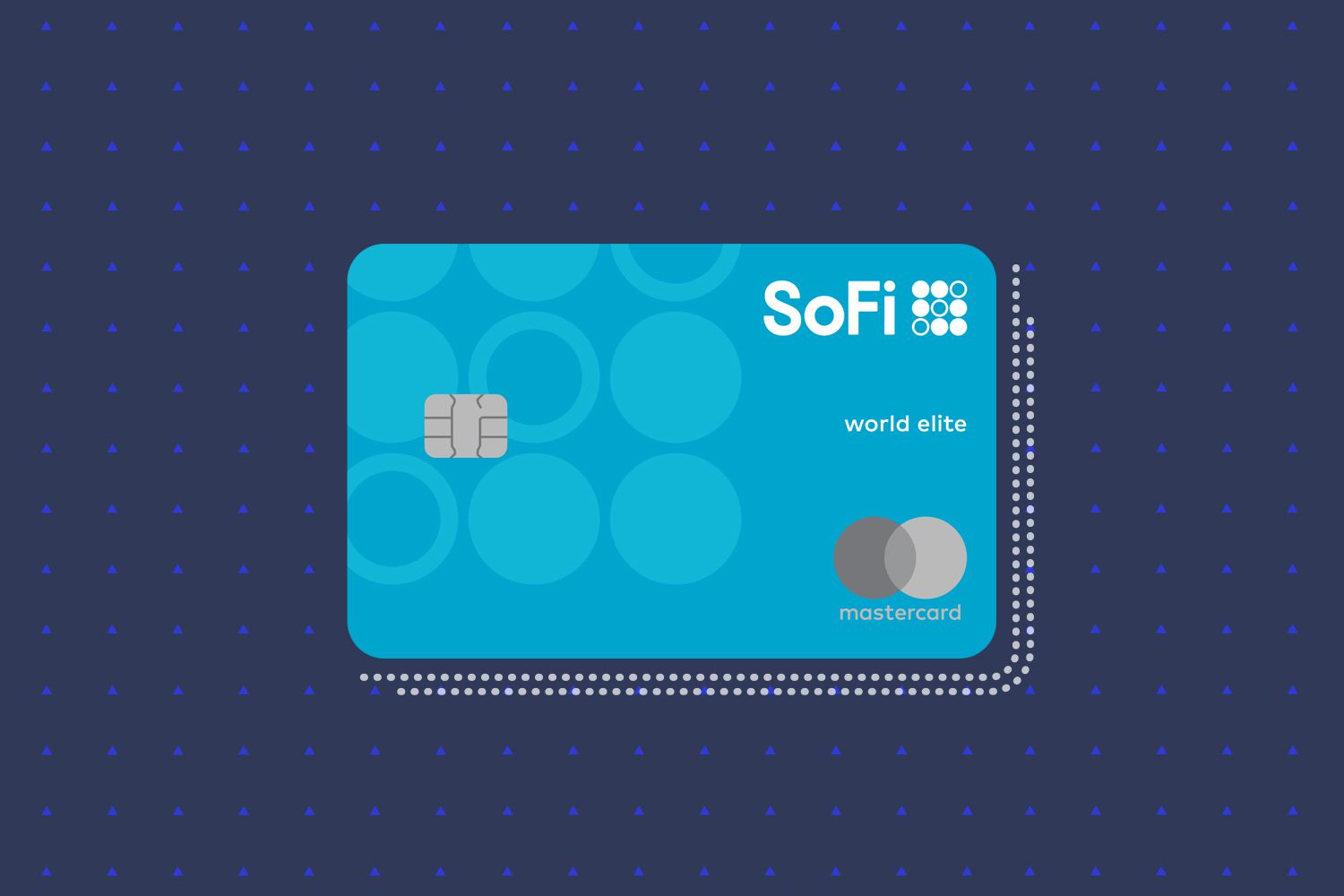Home>Finance>What Credit Bureau Does American Express Pull From


Finance
What Credit Bureau Does American Express Pull From
Modified: March 4, 2024
Discover which credit bureau American Express pulls from when evaluating your credit for finance purposes.
(Many of the links in this article redirect to a specific reviewed product. Your purchase of these products through affiliate links helps to generate commission for LiveWell, at no extra cost. Learn more)
Table of Contents
Introduction
Credit bureaus play a crucial role in the world of finance. These agencies collect and maintain vast amounts of information about individuals’ credit history and financial behavior. One of the most well-known credit bureaus is Equifax, Experian, and TransUnion. Lenders and financial institutions often rely on the data provided by credit bureaus to assess the creditworthiness of potential borrowers.
American Express, a prominent credit card issuer, also depends on credit bureaus to evaluate the creditworthiness of their applicants. When you apply for an American Express credit card, the company pulls your credit report from one of the major credit bureaus to assess your creditworthiness.
This article will explore the relationship between American Express and credit bureaus, specifically focusing on which credit bureau American Express pulls your credit report from. We will also discuss the factors that determine the choice of credit bureau and the potential impact on your credit score. Additionally, we will provide some tips on monitoring your credit report to ensure its accuracy.
How Credit Bureaus Work
Credit bureaus, also known as credit reporting agencies, are organizations that gather and maintain consumer credit information. They collect data from various sources, including lenders, creditors, and public records, to create comprehensive credit reports for individuals.
When you apply for credit, such as a loan or a credit card, the lender will typically request your credit report from one or more of the major credit bureaus. This report contains important information about your financial history, such as your payment history, outstanding debts, and any public records, such as bankruptcies or tax liens.
Credit bureaus utilize algorithms and statistical models to analyze the data they receive and generate a credit score. This score is a numerical representation of an individual’s creditworthiness and is used by lenders to determine whether to approve a credit application and what the terms of credit will be.
It’s important to note that credit bureaus act as intermediaries between lenders and consumers. They do not make lending decisions but provide the information that lenders use to make those decisions.
Equifax, Experian, and TransUnion are the three largest credit bureaus in the United States. These bureaus operate independently from one another and collect their own data. Therefore, it’s possible for the information found in your credit report to vary slightly from one bureau to another.
By law, credit bureaus must provide consumers with a free copy of their credit report once a year. This allows individuals to review the information and ensure its accuracy. If there are any errors or discrepancies, consumers have the right to dispute the information and have it corrected.
Now that we understand how credit bureaus work, let’s explore the relationship between American Express and credit bureaus to gain a better understanding of which credit bureau American Express pulls your credit report from.
American Express and Credit Bureau Relationship
Like other financial institutions, American Express relies on credit bureaus to evaluate the creditworthiness of their applicants. By accessing an applicant’s credit report, American Express can assess their credit history, outstanding debts, and payment patterns to make an informed decision regarding credit approval and terms.
American Express has a long-standing relationship with the three major credit bureaus: Equifax, Experian, and TransUnion. When you apply for an American Express credit card, the company will typically pull your credit report from one of these bureaus. However, the specific bureau from which American Express pulls your credit report may vary depending on several factors.
One factor that determines the choice of credit bureau is geographical location. American Express may opt to pull credit reports from different bureaus based on the applicant’s geographic location to ensure accurate and up-to-date information specific to that region.
Furthermore, American Express may also consider the credit bureau’s data quality and coverage. Each credit bureau collects information from different sources, and their data may vary slightly. American Express may prioritize a particular credit bureau based on the accuracy and completeness of the data they provide.
Another consideration is the historical relationship between American Express and the credit bureau. Over time, American Express may develop stronger partnerships or contracts with specific credit bureaus, leading them to prefer pulling credit reports from those bureaus.
It’s worth noting that while American Express commonly pulls credit reports from one of the three major bureaus, it’s possible for them to pull reports from multiple bureaus in some cases. This may occur if the applicant has credit information reported to different bureaus or if American Express wants to gather a more comprehensive view of the applicant’s credit history.
Now that we have an understanding of American Express’s relationship with credit bureaus, let’s delve into the specific credit bureau that American Express typically pulls your credit report from.
Which Credit Bureau Does American Express Pull From?
When it comes to determining which credit bureau American Express pulls your credit report from, there isn’t a definitive answer. American Express has been known to utilize different credit bureaus depending on various factors, including geographical location and the bureau’s data quality and coverage.
Equifax, Experian, and TransUnion are the three major credit reporting agencies, and American Express has partnerships with all three. However, the specific credit bureau American Express pulls from can vary from applicant to applicant.
One way to identify the credit bureau American Express has used is to review the hard inquiry listed on your credit report. Each time a lender, including American Express, requests your credit report, a hard inquiry is recorded, mentioning the name of the credit bureau that provided the report.
If you’re unsure of the credit bureau used by American Express, you can request a copy of your credit report from all three major bureaus. By reviewing the reports, you’ll be able to identify the bureau that American Express most commonly pulls from. However, keep in mind that the bureau used can still vary for different individuals and circumstances.
Another avenue to determine the credit bureau used by American Express is to reach out to their customer service. American Express may be able to provide information regarding the specific credit bureau they typically pull credit reports from, giving you a clearer understanding of where your information is sourced.
While there’s no guarantee that American Express will always pull your credit report from a specific credit bureau, having a general idea of the bureaus they commonly use can provide insight into the information they rely on to evaluate your creditworthiness.
Next, let’s explore some of the factors that determine which credit bureau American Express may choose for pulling your credit report.
Factors that Determine Credit Bureau Usage
Several factors come into play when determining which credit bureau American Express or any other lender decides to use when pulling your credit report. While it may not be possible to pinpoint the exact factors influencing their decision, here are some common considerations:
- Geographical Location: Lenders, including American Express, sometimes opt to use a specific credit bureau based on the applicant’s location. This helps ensure that the credit report includes relevant and accurate information specific to that region.
- Data Quality and Coverage: Each credit bureau collects credit information from different sources, such as banks, lenders, and public records. The quality and completeness of their data can vary. American Express may choose a credit bureau that provides the most accurate and comprehensive data for evaluating an applicant’s creditworthiness.
- Historical Relationship: Lenders often establish partnerships or contracts with specific credit bureaus over time. American Express may have developed a long-standing relationship with one or more bureaus, leading them to prefer pulling credit reports from those bureaus.
- Industry Standards and Practices: Lenders tend to follow industry standards and best practices when it comes to credit bureau usage. They may align with the practices of other financial institutions or adhere to guidelines recommended by regulatory bodies.
- Applicant’s Credit Profile: Depending on the applicant’s credit history and profile, American Express may choose a credit bureau that aligns with their specific needs. For example, if an applicant has a significant credit history with a particular bureau, American Express may opt to pull their credit report from the same bureau for consistency.
It’s important to remember that the factors influencing credit bureau usage are not fixed and can vary from lender to lender or even among different loan products within the same institution. Therefore, it’s challenging to make definitive statements about which credit bureau American Express will use for all applicants.
While understanding the factors that influence credit bureau selection can provide some insight, the best way to determine which credit bureau American Express pulls your credit report from is to review your actual credit reports or reach out to their customer service for clarification.
Now that we’ve explored the factors that determine credit bureau usage let’s discuss the potential impact on your credit score.
Impact on Credit Score
When American Express or any other lender pulls your credit report from a credit bureau, it results in a hard inquiry on your credit history. While a single hard inquiry typically has a minimal impact on your credit score, multiple inquiries within a short period of time can have a more noticeable effect.
The impact of a hard inquiry on your credit score can vary depending on several factors. These factors include the overall health of your credit profile, the scoring model used by the credit bureau, and the number of recent inquiries.
In general, a single hard inquiry is unlikely to have a significant impact on your credit score. However, if you have multiple recent inquiries from different lenders, it may raise concerns about your credit-seeking behavior. This can result in a slight decrease in your credit score.
Fortunately, credit scoring models take into account the fact that consumers may shop around for the best rates. When applying for a mortgage, auto loan, or credit card, for example, credit scoring models typically consider multiple inquiries made within a certain time frame (often 14-45 days) as a single inquiry. This allows you to minimize the impact on your credit score while still exploring your options.
It’s important to note that the impact of a hard inquiry on your credit score is temporary and typically fades over time. As long as you continue to responsibly manage your credit, the negative effects of inquiries will diminish.
To mitigate the impact on your credit score, it’s wise to be selective when applying for credit and only do so when necessary. Applying for credit only when needed and spacing out applications can help minimize the number of hard inquiries on your credit report.
Now that we understand the potential impact of credit inquiries on your credit score, let’s discuss the importance of monitoring your credit report.
How to Monitor Your Credit Report
Monitoring your credit report is essential for maintaining a healthy credit profile and detecting any inaccuracies or suspicious activity. Here are several steps you can take to effectively monitor your credit report:
- Get Free Annual Credit Reports: By law, you are entitled to a free copy of your credit report from each of the three major credit bureaus – Equifax, Experian, and TransUnion – once a year. Visit AnnualCreditReport.com to request your reports, and review them for inaccuracies or unfamiliar accounts.
- Consider Credit Monitoring Services: There are several credit monitoring services available that provide regular access to your credit reports and alerts for any changes or suspicious activities. These services often come with additional features such as credit score tracking and identity theft protection.
- Set Up Credit Alerts: Many credit bureaus and financial institutions offer credit alert services. These alerts notify you of any significant changes to your credit report, such as new accounts, credit inquiries, or delinquent payments. Take immediate action if you receive an alert about suspicious activity.
- Review Your Statements Regularly: Stay proactive by examining your financial statements, including credit card and loan statements, on a regular basis. Look for any unauthorized charges, unusual transactions, or discrepancies that may indicate identity theft or errors.
- Consider a Credit Freeze: If you suspect fraudulent activity or want added security, you can place a credit freeze on your credit reports. This restricts access to your credit information, making it more challenging for potential identity thieves to open new accounts in your name.
- Monitor Your Credit Score: While your credit report provides detailed information, monitoring your credit score gives you a quick snapshot of your creditworthiness. Many credit monitoring services and financial apps offer credit score tracking to help you stay on top of any changes.
- Report Errors Promptly: If you notice any inaccuracies or discrepancies in your credit report, be sure to report them to the credit bureau immediately. Provide them with any supporting documents or evidence to help resolve the issue swiftly.
By regularly monitoring your credit report, you can detect any issues early on and take appropriate action to protect your credit profile. Identifying and addressing errors promptly can help prevent potential damage to your credit score and ensure that your credit information remains accurate and up-to-date.
Now, let’s conclude our discussion on American Express and credit bureaus.
Conclusion
Understanding the relationship between American Express and credit bureaus is essential for anyone considering applying for an American Express credit card or seeking insights into credit report usage. While the specific credit bureau American Express pulls from can vary, it is typically one of the major bureaus – Equifax, Experian, or TransUnion.
Factors such as geographical location, data quality and coverage, historical relationships, industry practices, and an applicant’s credit profile can all influence the choice of credit bureau. However, it is difficult to predict with certainty which bureau American Express will use for each individual application.
It’s important to be aware of the potential impact of credit inquiries on your credit score. While a single inquiry is unlikely to have a significant effect, multiple inquiries within a short period can slightly decrease your credit score. Monitoring your credit report regularly and taking steps to manage and protect your credit can help mitigate any negative impact.
To effectively monitor your credit report, take advantage of free annual credit reports, consider credit monitoring services, set up credit alerts, review financial statements regularly, and report any errors promptly. By staying vigilant and proactive, you can maintain a healthy credit profile and detect any discrepancies or fraudulent activity that may arise.
Remember, your credit report is a reflection of your financial history, and it plays a vital role in financial decisions made by lenders like American Express. Knowing how credit bureaus operate, the relationship between American Express and credit bureaus, and the importance of monitoring your credit report empowers you to make informed financial choices and protect your creditworthiness.
By staying knowledgeable and proactive, you can navigate the world of credit with confidence and take control of your financial future.














